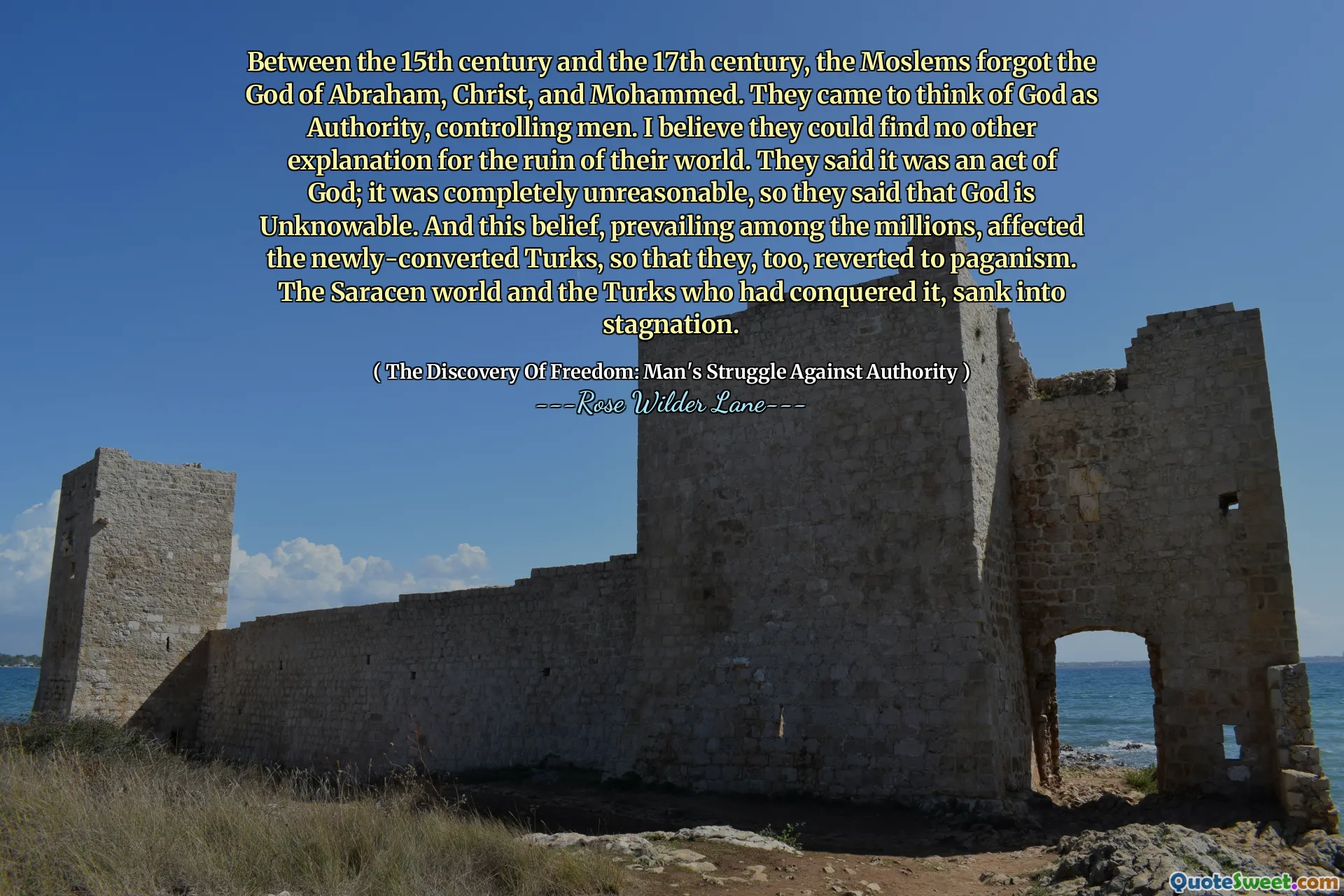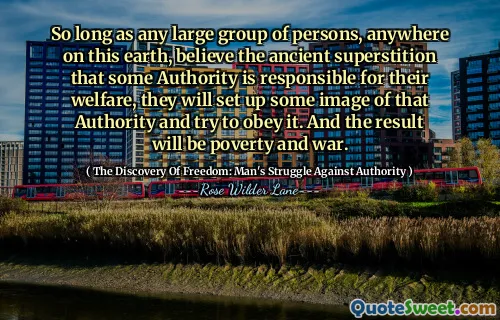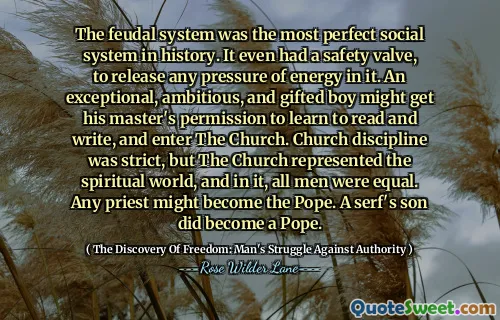
Between the 15th century and the 17th century, the Moslems forgot the God of Abraham, Christ, and Mohammed. They came to think of God as Authority, controlling men. I believe they could find no other explanation for the ruin of their world. They said it was an act of God; it was completely unreasonable, so they said that God is Unknowable. And this belief, prevailing among the millions, affected the newly-converted Turks, so that they, too, reverted to paganism. The Saracen world and the Turks who had conquered it, sank into stagnation.
Between the 15th and 17th centuries, many Muslims shifted their understanding of God from a personal being to an impersonal Authority, reflecting a sense of despair over their societal decline. This transformation stemmed from their inability to rationalize the chaos around them, leading them to believe that God was Unknowable, as they attributed their dire circumstances to divine will. This perspective spread among the populace, deeply influencing even the newly converted Turks, who increasingly turned back to pagan beliefs.
This cultural and spiritual stagnation marked a significant decline in the once vibrant Saracen world. The shift in perception towards God not only affected individual faith but also contributed to a broader societal stagnation. Rose Wilder Lane's commentary highlights how the loss of a personal connection to the divine may have played a role in the broader disintegration and decline of civilizations during this period.











